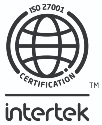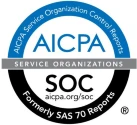How to navigate the complexities of Delegated Authority

Navigating the complexities of Delegated Authority can often feel like walking a tightrope. How do you ensure you're striking the right balance between compliance and operational efficiency? INSTANDA's recent discussion with GreenKite’s CXO, Karen Stanford, and Senior Assurance Manager, Marcus Tompson, sheds light on this pressing issue. Managing General Agents (MGAs) operate under a spectrum of responsibilities, from distribution to claims handling, and with each authority comes a broader scope of regulatory concerns.
This blog takes you through the heart of Delegated Authority obligations. From uncovering common compliance difficulties to the undeniable power of efficient workflow management in fulfilling these obligations, Karen and Marcus offer invaluable insights. They also discuss the crucial role of technology in ensuring compliance in an era where Consumer Duty policies are reshaping the industry landscape.
Whether you're grappling with the challenges of bordereaux management or seeking strategies to enhance your compliance, this Q&A discussion provides insight into thriving under Delegated Authority.
Karen and Marcus, can you summarise the Delegated Authority obligations that MGAs must meet?
Delegated Authority obligations vary considerably depending on the relationship between the MGA and can range from distribution only to claims handling responsibility and often pricing or even co-manufacturing.
The more authority delegated to an MGA, the wider their regulatory concerns.
For most MGAs, Consumer Duty has become the most pressing FCA requirement of the last 18 months, with wide-ranging changes to the standards of outcome they should be providing to consumers with a clear step up from TCF to delivering “good customer outcomes”. This changing regulatory landscape has forced many MGAs to consider their business end-to-end, with some business models appearing potentially unsustainable. The new regulatory requirements mean MGAs are at risk of distribution costs and commissions have exceeded the regulator's tolerance for what it considers “fair value”. In addition, the SME market, previously designated commercial business, now falls into the scope of Consumer Duty. This means the informational needs of the ultimate target market must be considered under Outcome 3, where previously as commercial customers, such policy documents were aimed solely at a professional level of understanding.
Ultimately, co-manufacturing MGAs that own the claims responsibility carry the greatest obligations, where Consumer Duty outcomes 1-4 are applicable. Needless to say, insurers remain ultimately accountable to oversee and approve the Consumer Duty deliverables and ensure good outcomes where they delegate authority, however, MGAs have a responsibility to manage their business in accordance with regulatory requirements and are likely to be subject to ever-increasing scrutiny from both the insurer and regulator.
What are the most common compliance issues that GreenKite sees?
At present, the most common compliance issues reflect those drawn out by the Consumer Duty framework. Consumer Duty is considered a sub-set of conduct risk, and this is ultimately shaped by the regulator's view that poor conduct is the primary root cause of creating customer harm within firms. Having the right mission and purpose, the right remuneration model and the correct culture are central to the success of any MGA when operating as a delegated authority.
The implementation of Consumer Duty has changed the regulatory message from ‘we put the customer at the heart of what we do’ to ‘demonstrating good outcomes for retail customers via your data.’
Across the market, GreenKite is seeing:
- Poorly defined target markets (Outcome 1),
- Unscientific and unsustainable fair value assessments, which do not demonstrate fair value (outcome 2)
- Policy and financial promotional information which does not meet the informational needs of the customer, and may often be unreadable for some customer groups, partly because the target market is not defined properly, or is too wide to recognise the informational needs of the sub-sets (outcome 3)
- Support services with too much claims friction, barriers to cancel, delays to resolve claims, and misrepresentations of the claims services customers should expect (outcome 4)
Whilst most firms have taken great strides towards delivering good customer outcomes since the announcement of the Duty, evidence of progress through data and information remains an issue for many firms.
Why is efficient workflow management so important?
For an insurer or a large MGA, to onboard a delegated authority, there is a significant due diligence and ongoing management responsibility. Ultimately, firms delegating out responsibility are still accountable for the customer and commercial performance achieved by the MGA beneath them in the chain. This means that due diligence is even more critical in the Consumer Duty age.
With considerations historically ranging from financial soundness, technical expertise, TCF and operational resilience, these have now been built upon by principle 12 and the Consumer Duty outcomes.
Firms now need a wide-ranging set of skills and people to assess the different requirements of firms, and the various services they will provide.
Effective workflow management allows this activity to be split and approached in parallel whilst ensuring every relevant component is checked fully and approved by the right experts – without the risk that individual components can be bypassed either in error or via the desire for expediency. Strong audit trails allow decisions and approvals to be tracked back, meaning relevant SMFs can be held accountable if something goes wrong and the regulator gets involved, or, if a firm needs to conduct a lessons-learned exercise on past due diligence.
Moving into day-to-day operations, workflow management ensures key tasks are completed, and any missing reporting or oversite activities are quickly identified and rectified. In these cases, firms no longer need to rely on individual employee attention to detail, as a stronger control environment is in place. Over time, firms can identify bottlenecks, continuous points of near failure or delays, and adjust their people plans accordingly.
Ultimately, workflow management can provide the very strongest control environment when supporting delegated authority operations.
What are the key things that MGAs must implement for accurate and timely bordereaux management?
The short answer is automation, but in reality, it takes more than that. MGAs need to ensure they understand the bordereaux requirements of their partners fully, and that they can capture and source the appropriate data in a timely fashion from any other partners in the chain whom they rely on to provide information. They must make sure these partners also understand the data requirements and are technically and culturally willing to collect and codify the correct data and supply it on time.
MGAs will typically need to aggregate multiple distributors and DCAs data sets themselves, before passing it up the chain, in the correct format, with the right accuracy, on time – first time. Automation is obviously the key to this but ensuring that the inputs are correct allows MGAs to be able to ensure their outputs are correct.
Typically, bordereaux management systems play an important role in the process, but without effective process, governance, standards and culture, technology cannot make it happen in isolation.
What steps can an MGA take to strengthen their compliance with regulatory standards?
Many firms think about compliance as part of their process, governance, and cultural infrastructure. A strong compliance culture is based on the efficiency of compliance by design. Adopting an approach of compliance by design allows MGAs to optimise their culture, processes, and policies to do things the right way. This reduces friction within the organisation and establishes a strong risk control culture.
Policies and procedures set out what should happen, and how it should happen, and the required evidence needed. Each firm's compliance approach should be proportionate based on individual firms' risk appetite and stage of evolution. Where firms deviate from their own policies and procedures or don’t have the correct standards in place on paper, they are likely to fall short of regulatory standards.
MGAs should focus on what end-to-end compliance by design looks like and ensure this is their starting point. From here, they can conduct assurance and gap analysis to identify failures and the root causes. Root cause analysis allows the MGA to correctly identify the problem and take the right steps to return to the intended process, and procedure, and achieve the outcome they are looking for.
What role does technology play in the compliance process?
We hear more and more compliance teams telling us that compliance used to be about words, now it is about data. Consumer Duty and surrounding policy statements have shifted the goalposts within the industry. Compliance departments now need to specialise in analytics and analysis, gleaning deeper meaning and cause-and-effect from available data, not just focusing on what the rules say. GI value measures have brought a new level of data thinking into the compliance process. Claims and complaints analysis has now been reviewed alongside fair value analysis. Compliance extends into areas like loss ratios and commissions, where previously this was the role of just underwriting.
It is clear that good data is a result of robust technology design. Compliance requirements should now be at the heart of technology considerations as tools that enable the effective capture and processing of large amounts of data are becoming increasingly important in the compliance landscape, and this trend is only likely to continue.
Having the right technology to capture, build and interrogate vast data lakes and millions of lines of retail bordereaux is becoming a must-have capability to satisfy the increasing regulatory need.
How can MGAs ensure operational efficiency and compliance in managing Delegated Authority arrangements?
MGAs being clear on what good looks like, and meeting Consumer Duty requirements are central to a long-term successful MGA business. Firms need to have the right people, process, governance, technology, and culture to have a robust working model which meets the ongoing demands of their insurer partners and the regulator. Couple that with the relatively limited margins an MGA firm operates within, ensuring a robust and efficient business must be at the heart of all MGA’s strategies going forward. Without these elements, and alongside leadership, MGAs are going to find life difficult.
In a hard market, where capacity is at a premium, poor Consumer Duty performance, poor data management or ineffective processes and systems could cost an MGA dearly. Whilst technology projects used to feel like a luxury within an MGA business, the ever-increasing data requirements may turn technology reviews supported by business change projects into a necessity for survival in an increasingly data-focused world.





